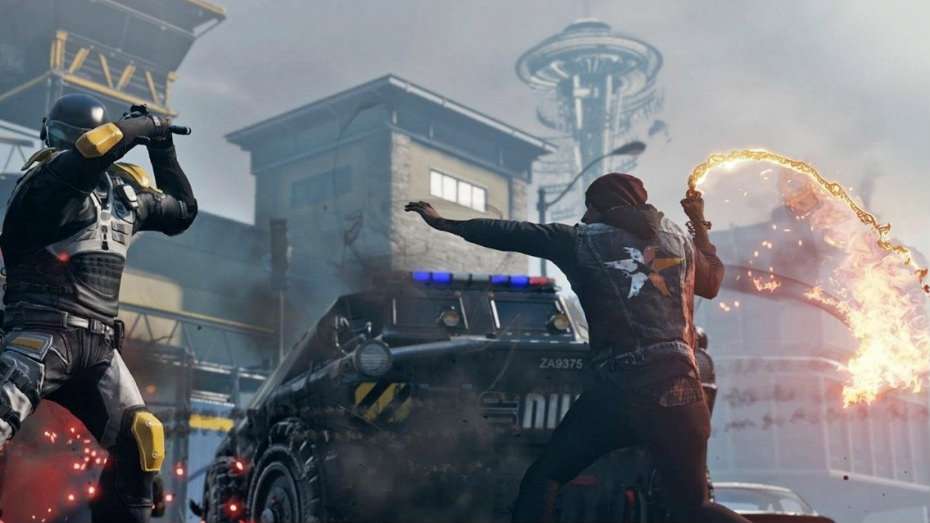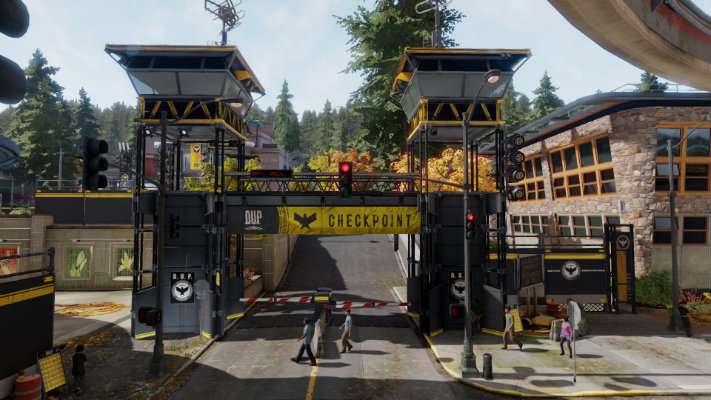Infamous: Second Son Lets You Smash Seattle's Anti-Superhero Security State

Infamous: Second Son, a recently released exclusive for the Sony PlayStation 4 game console doesn't quite deserved to be described as a political video game, at least not in the sense that there's some specific ideological message being delivered.
What's interesting, though, is the way game developers at Sucker Punch Productions have casually incorporated a slew of familiar issues about security state overreach into the story, world, and gameplay.
For the most part, Second Son is a fairly typical open-world action game that casts players as a Delsin Rowe, a young man granted a variety of superpowers that can be charged and activated by interacting with the environment (smoke power abilities require smoke, neon powers need neon, concrete powers use concrete, and so on). In this case, the environment is a digitally mocked up model of present-day Seattle, complete with all the recognizable landmarks, including a fish market, a neon-lit version of the Crocodile Café, and a fully scalable Space Needle. Running, jumping, and gliding around the gorgeously rendered virtual city is a lot of fun, and the game offers the best demonstration yet of the processing power and visual potential of Sony's new console.
But the game's vision of Seattle is informed by newsy security state fears: Rowe, the player's avatar, is a Conduit—one of a rare but growing cohort of individuals who can access all those special environmentally charged powers. In the game's world, the mere existence of Conduits scares a lot of people (protesters are a common sight in the game); they're branded as terrorists by the government and the media, and a heavily armed new agency, the Department of Unified Protection (DUP), is created to keep them in check.

Shortly after the game begins, the DUP puts Seattle on lockdown. There are armed patrols and massive security checkpoints everywhere. DUP drones patrol the skies, and security cameras keep tabs on public spaces. In a nice touch, most of the DUP agents have been granted Conduit-like powers themselves—the same ones that they are supposed to be eliminating from the general population. (Indeed, the agency is run by a particularly powerful Conduit.)
In some ways, it's a pretty familiar sci-fi security state scenario. But many of the specifics—the checkpoints, the cameras—are also pretty clear inspired by contemporary concerns about surveillance-state excesses. The DUP resembles a sort of exaggerated, hyper-militarized mash-up of the Department of Homeland Security (DHS) and the Transportation Security Administration (TSA), with maybe a little bit of the border patrol and SWAT thrown into the mix as well. In the end, the DUP chief's motives turn out to be a little bit complex, but there's never any question that the agency is the game's villain. You spend an awful lot of time moving Rowe through spectacular set-piece battles with the DUP, and many of the game's objectives involving destroying DUP equipment, checkpoints, and patrols.
I don't think the game, which relies on a fairly typical comic-book-style plot about a young man gaining powers, has a particular political message in mind. But its casual use of security state signifiers does suggest how common those worries now are, how far they've spread, and how deeply and thoroughly they've penetrated the pop-culture consciousness.


Show Comments (35)